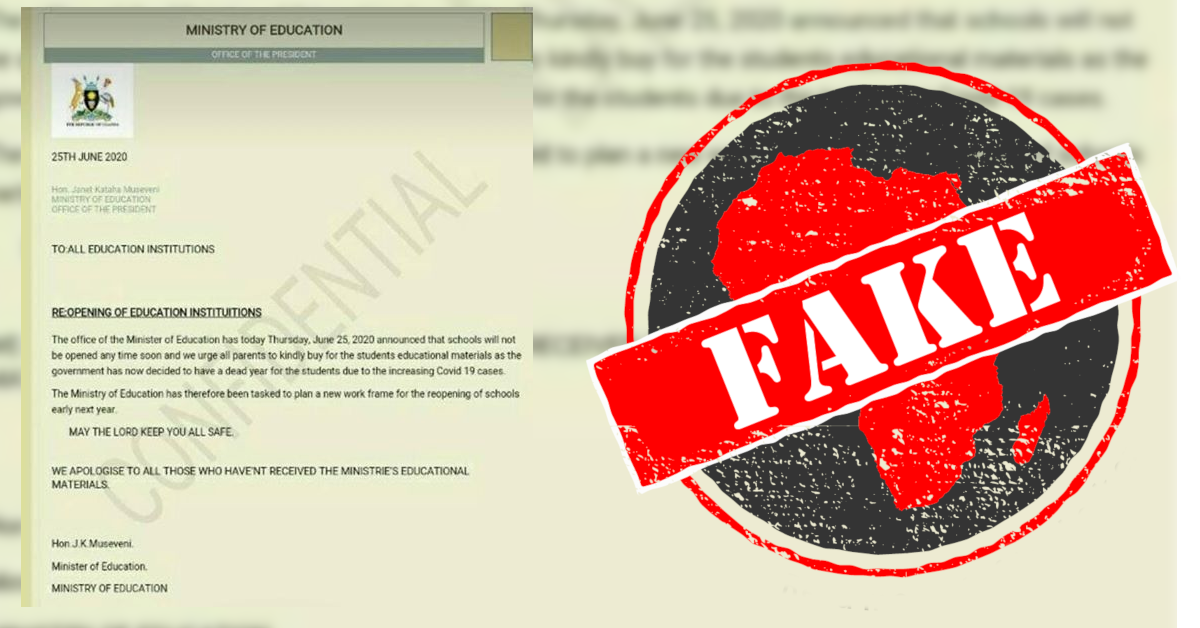On 20 September 2020, a fire broke out in the main administration building of Uganda’s Makerere University. The police quickly launched an investigation.
After the fire, a screenshot of a tweet began to circulate online, supposedly from the deputy spokesperson for the Uganda Police Force, Polly Namaye.
The tweet, undated but shared on 20 September, reads: “According to our investigation, we have found out sadly that the papers of the President of Uganda were also destroyed in the fire outbreak at Makerere University.”
It appears to be from the account @bnamaye1, is signed “Polly Namaye” and tags three other Twitter accounts.
But on the same day, Makerere University vice chancellor Barnabas Nawangwe assured the public on Twitter that “ALL our records past and current; Human resource, student, academic and financial records are ALL safely stored in digital form.”
In late August, Muwada Nkunyingi, a lawyer from the Ugandan capital Kampala, presented a petition to the country’s electoral commission seeking access to president Yoweri Museveni’s academic documents.
According to Nkunyingi, the electoral commission has never checked if Museveni meets the academic qualifications to run for president, even though he has been in power since 1986.
Uganda goes to the polls in 2021.
So did a police spokesperson really tweet that Museveni’s academic records were destroyed in the university fire? Or is this just too convenient to be true?

On 17 September 2020, the Ugandan police shared a screenshot of the Twitter account with the handle @bnamaye1. The police stamped the screenshot “FAKE ACCOUNT”.
There is no evidence Museveni’s academic records have been destroyed. – Grace Gichuhi
After the fire, a screenshot of a tweet began to circulate online, supposedly from the deputy spokesperson for the Uganda Police Force, Polly Namaye.
The tweet, undated but shared on 20 September, reads: “According to our investigation, we have found out sadly that the papers of the President of Uganda were also destroyed in the fire outbreak at Makerere University.”
It appears to be from the account @bnamaye1, is signed “Polly Namaye” and tags three other Twitter accounts.
But on the same day, Makerere University vice chancellor Barnabas Nawangwe assured the public on Twitter that “ALL our records past and current; Human resource, student, academic and financial records are ALL safely stored in digital form.”
In late August, Muwada Nkunyingi, a lawyer from the Ugandan capital Kampala, presented a petition to the country’s electoral commission seeking access to president Yoweri Museveni’s academic documents.
According to Nkunyingi, the electoral commission has never checked if Museveni meets the academic qualifications to run for president, even though he has been in power since 1986.
Uganda goes to the polls in 2021.
So did a police spokesperson really tweet that Museveni’s academic records were destroyed in the university fire? Or is this just too convenient to be true?

Twitter account discredited
On 17 September 2020, the Ugandan police shared a screenshot of the Twitter account with the handle @bnamaye1. The police stamped the screenshot “FAKE ACCOUNT”.
There is no evidence Museveni’s academic records have been destroyed. – Grace Gichuhi
Republish our content for free
For publishers: what to do if your post is rated false
A fact-checker has rated your Facebook or Instagram post as “false”, “altered”, “partly false” or “missing context”. This could have serious consequences. What do you do?
Click on our guide for the steps you should follow.
Publishers guideAfrica Check teams up with Facebook
Africa Check is a partner in Meta's third-party fact-checking programme to help stop the spread of false information on social media.
The content we rate as “false” will be downgraded on Facebook and Instagram. This means fewer people will see it.
You can also help identify false information on Facebook. This guide explains how.


Add new comment